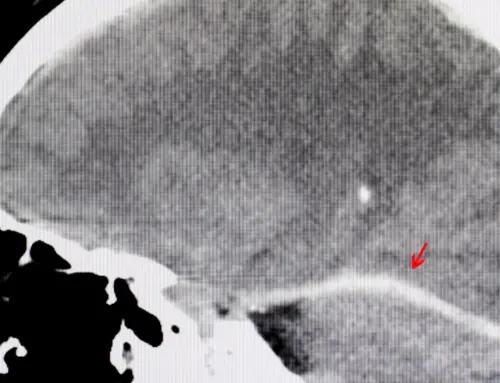You walk through the recovery center exit for the final time, but your chest tightens with each step. This isn’t withdrawal anxiety anymore. This is pure, unfiltered possibility mixed with raw terror.
Recovery gave you back your clarity. Treatment taught you how to live clean. Now comes the hardest test of all. Can you rebuild what addiction destroyed?
Adjusting to life after rehab feels like walking on eggshells during Sunday dinner. Your mom watches your every move. Your spouse measures their words carefully. Even your closest friends keep asking if you’re “really okay this time.” Everyone’s rooting for you, but they’ve been hurt before.
The recovery center prepares you for cravings and triggers. They taught you coping strategies and gave you phone numbers to call. What they couldn’t prepare you for was this moment. Standing in your own life again, wondering if the people you love most can ever fully trust you again. Adjusting to life after rehab isn’t just about staying clean. It’s about proving that the person you’ve become deserves a second chance at the relationships that matter most.
Related: Addiction and Family Roles: How Family Dynamics Influence Recovery
Why Adjusting to Life After Rehab Feels Overwhelming
The transition from structured treatment to independent living creates unique opportunities for growth alongside natural challenges.
Your Brain Needs Time to Heal from Addiction
Recovery allows your brain to restore its natural balance and function. During active addiction, substances disrupt your brain’s reward system and decision-making processes. The healing process brings positive changes that strengthen your ability to think clearly and manage emotions effectively.
Your brain actively rebuilds healthy pathways during recovery. You might notice improvements in concentration, emotional stability, and decision-making abilities as healing progresses. These positive changes continue developing over months and years of sustained sobriety.
Early recovery brings heightened emotional awareness as your natural feelings return. This emotional clarity, while sometimes intense, provides valuable information about your needs, relationships, and personal growth. Learning to navigate these authentic emotions strengthens your recovery foundation and improves your relationships.
Daily Routines Must Be Completely Rebuilt
Treatment centers provide helpful structure that supports healing while teaching you valuable routine-building skills. Post-rehab life gives you the freedom to create personalized routines that reflect your values, goals, and recovery priorities.
Building new routines offers exciting opportunities to explore healthy activities and discover new interests. You can design days that include meaningful work, enjoyable hobbies, physical activity, and quality time with supportive people. This creative process helps you build a life that genuinely reflects who you’re becoming in recovery.
Establishing healthy patterns takes practice and patience with yourself. Each day provides new chances to strengthen positive habits and make choices that support your well-being. These daily decisions build confidence and demonstrate your commitment to lasting change.
Relationships Require Careful Navigation and Patience
Recovery creates opportunities to build stronger, more authentic relationships than were possible during active addiction. Family members and friends often feel hopeful about reconnecting and rebuilding trust when they see your commitment to change.
Some relationships may need thoughtful evaluation and new boundaries to support your continued growth. Recovery helps you recognize which connections add value to your life and which might require distance or changes. This clarity empowers you to invest in relationships that support your highest good.
Even challenging relationships can improve through your continued growth and positive changes. As you demonstrate consistency and reliability, family dynamics naturally shift toward healthier patterns. Your recovery journey often inspires positive changes in others as well.
How to Rebuild Trust with Family Members

Restoring family relationships becomes possible through consistent action, honest communication, and patience with the natural healing process.
Start with Small, Consistent Actions
Trust rebuilds through reliable, daily actions that demonstrate your commitment to change. Your family will notice and appreciate consistent behaviors that show your recovery is genuine and lasting.
Focus on achievable commitments you can maintain consistently. Show up when you promise to be there. Follow through on household responsibilities. Keep appointments and maintain healthy routines. These actions create a foundation of reliability that supports relationship healing.
Building a sober daily routine with clear commitments helps you demonstrate dependability. Whether it’s calling family members regularly, helping with household tasks, or participating in family activities, consistent follow-through shows your dedication to rebuilding relationships.
Acknowledge mistakes quickly and take corrective action when you miss commitments. Your family needs to see that you can handle setbacks responsibly and get back on track. This mature response to challenges builds confidence in your recovery.
Communicate Openly About Your Recovery Journey
Honest communication helps family members understand your experience and creates opportunities for deeper connection. Share what you learned in treatment, what tools help you stay strong, and how they can best support your continued growth.
Explain how recovery has changed your perspective and priorities without dwelling on past mistakes. Focus on the positive changes you’re making and your hopes for the future. This forward-looking approach helps family members feel optimistic about your relationship.
Ask family members about their experiences and listen with genuine care and interest. Understanding their feelings helps you respond with compassion and patience. These conversations create emotional intimacy and demonstrate your commitment to their well-being.
Express gratitude for their patience and support during your recovery process. Acknowledging their sacrifices and showing appreciation strengthens your emotional bond and encourages continued healing.
Set Realistic Expectations for Healing Timeline
Recovery relationships heal at different paces, and respecting this natural process creates space for authentic restoration. Some connections improve quickly while others need more time to fully develop trust and intimacy.
Discuss hopes and boundaries openly with family members. Ask what they need to feel comfortable and safe in the relationship. Share what support helps your recovery most. These conversations create mutual understanding and realistic expectations.
Accept that healing happens gradually while celebrating small improvements along the way. Each positive interaction builds toward stronger relationships. Patience with the process allows genuine healing rather than forced reconciliation.
Focus on your own continued growth regardless of others’ responses or timeline. You cannot control their healing process, but you can consistently demonstrate positive change through your actions and attitudes.
What to Expect When Reconnecting with Friends
Friendship dynamics often evolve during recovery, creating opportunities for deeper connections and more authentic relationships.
Some Friendships May Not Survive Your Sobriety
Recovery helps you recognize which friendships were built on genuine connection versus shared substance use. This clarity, while sometimes painful, allows you to invest energy in relationships that truly support your well-being and growth.
Friends who continue using substances may feel uncertain about how to relate to you in recovery. Some may need time to adjust to your changes, while others might discover they prefer your authentic, sober personality. Many friendships actually improve when substances no longer interfere with genuine connection.
Focus on developing relationships with people who appreciate and support your recovery journey. These connections, whether new or renewed, provide more satisfaction and stability than superficial friendships based solely on shared activities.
Quality relationships matter more than quantity. A few genuine, supportive friends provide greater value and enjoyment than many surface-level connections that don’t support your values and goals.
New Boundaries Will Need Clear Communication
Recovery empowers you to establish clear boundaries that protect your well-being while maintaining valuable friendships. These boundaries create space for relationships to grow in healthy directions.
Communicate your needs clearly and kindly. Explain activities you prefer to avoid and suggest alternative ways to spend time together. Most genuine friends will respect and support boundaries that help you maintain your recovery.
Support groups after rehab often provide guidance on setting healthy boundaries in friendships. Learning from others who’ve navigated similar challenges gives you practical strategies and confidence to maintain important relationships while protecting your sobriety.
Set boundaries around conversations as well as activities. Ask friends to avoid sharing details about their substance use if it feels triggering. Healthy friendships naturally respect these requests and find other topics of mutual interest.
Sober Activities Replace Previous Social Habits
Building a social life focused on a healthy lifestyle after rehab requires creativity and openness to new experiences. Many people discover they enjoy activities more when they can fully participate and remember the entire experience.
Explore new activities that interest you and align with your recovery values. Join fitness classes, hobby groups, volunteer organizations, or recreational sports leagues. These activities help you meet like-minded people while developing new skills and interests.
Suggest sober activities when spending time with existing friends. Meet for coffee, go hiking, attend movies or concerts, or participate in community events. Many friends appreciate these alternatives and discover they enjoy substance-free activities.
Socializing in recovery might feel different initially, but most people find they can connect more authentically without substances interfering. Your confidence will grow as you practice these new social skills and discover genuine connections.
How to Handle Anxiety and Depression After Treatment

Mental health support becomes even more important during recovery, and many effective resources can help you navigate anxiety and depression after addiction treatment.
Professional Counseling Provides Ongoing Support
Anxiety and depression after addiction treatment respond well to professional counseling and therapy. Mental health professionals help you develop personalized strategies for managing difficult emotions while maintaining your recovery progress.
Individual therapy provides personalized support for your specific mental health needs. A therapist can help you develop healthy coping strategies, process difficult emotions, and work through relationship challenges. Regular sessions create accountability and professional guidance.
Group therapy connects you with others facing similar challenges. Sharing experiences and hearing different perspectives reduces isolation and provides practical advice from peers. Many people find group support especially valuable during the adjustment period.
Establish therapeutic relationships early in your recovery journey to build support before challenges arise. Mental health professionals from organizations like the National Alliance on Mental Illness can help you recognize positive patterns and develop effective prevention strategies.
Healthy Coping Strategies Replace Substance Use
Learning new ways to manage stress and difficult emotions strengthens your recovery foundation while improving your overall quality of life. The coping skills you learned in treatment become more natural with consistent practice.
Physical exercise releases natural mood-boosting chemicals that reduce stress and improve emotional well-being. Regular physical activity also improves sleep quality, increases energy, and provides structure to your day. Find activities you genuinely enjoy rather than forcing yourself into exercise you dislike.
Mindfulness and meditation practices help you observe thoughts and emotions without feeling overwhelmed. Even brief daily meditation can reduce stress and improve emotional regulation. Many apps and online resources make these practices easily accessible.
Creative outlets like art, music, or writing provide healthy ways to express emotions and process experiences. These activities also offer enjoyable ways to spend time and connect with others who share similar interests.
Medication Management with Medical Supervision
Some people benefit from medication for mental health conditions when properly managed by healthcare providers. Working with medical professionals ensures safe and effective treatment that supports your recovery goals.
Be completely honest with doctors about your addiction history. This information helps them prescribe appropriate medications that support rather than threaten your sobriety. Many effective, non-addictive options exist for treating mental health conditions.
Take medications exactly as prescribed and attend all follow-up appointments. Never adjust dosages without medical supervision or share medications with others. Proper medication management requires ongoing medical support and monitoring.
Combine medication with therapy and healthy lifestyle changes for optimal results. Medication works best as part of a comprehensive approach that includes professional support, healthy habits, and strong social connections.
Examples of Building a Strong Support System
Creating a network of supportive people significantly improves your ability to maintain sobriety and build fulfilling relationships.
Support Groups After Rehab Offer Peer Connection
Support groups after rehab connect you with people who understand recovery challenges and can offer encouragement based on personal experience. These groups provide accountability, practical advice, and lasting friendships.
Twelve-step programs like Alcoholics Anonymous or Narcotics Anonymous are widely available and provide structured support. These groups offer sponsors for individual guidance and regular meetings that create routine and community connection.
Alternative support groups like SMART Recovery or Refuge Recovery offer different approaches to peer support. Some people prefer these options because they focus on different philosophies or techniques. Explore various groups to find the best fit for your personality and needs.
Online support groups provide connection when in-person meetings aren’t available or convenient. These communities offer around-the-clock support and connect you with people from diverse backgrounds. However, in-person connections often provide stronger accountability and deeper relationships.
Sponsors Provide Personal Guidance and Accountability
Sponsors are experienced recovery community members who provide individual guidance based on their own successful recovery journey. They share practical wisdom, offer encouragement, and provide accountability for your recovery commitments.
A good sponsor demonstrates the lifestyle and attitude you want to develop. They should be available for regular contact and willing to share their experience honestly. Most sponsors expect commitment to regular communication and active participation in recovery activities.
The sponsor relationship requires honesty, willingness to listen, and commitment to personal growth. Sponsors provide guidance based on their recovery experience and program knowledge, offering valuable perspective during challenging times.
Take time to observe different people before choosing a sponsor. Attend meetings regularly and look for someone whose recovery approach resonates with your goals. You can change sponsors if the relationship isn’t working, and most people understand that finding the right fit takes time.
Sober Living Communities Create Safe Environments
Sober living facilities provide structured, substance-free housing for people transitioning from treatment to independent living. These communities offer accountability, peer support, and gradual independence while maintaining sobriety.
Residents follow house guidelines about responsibilities, meeting attendance, and maintaining sobriety. These expectations create helpful structure while allowing more freedom than treatment centers. Living in a supportive environment helps bridge the gap between treatment and complete independence.
Living with others in recovery provides built-in support and understanding. Housemates can offer encouragement during difficult times and celebrate your successes. These relationships often become lasting friendships that support long-term recovery. Professional medical detox programs often recommend transitional housing as part of a comprehensive recovery plan.
Sober living communities also help you develop practical life skills like budgeting, cooking, and household management in a supportive environment. This gradual increase in responsibility prepares you for independent living while maintaining recovery support.
How to Create Structure in Your Post-Rehab Life
Establishing healthy routines and meaningful goals provides stability and purpose while supporting your continued growth and sobriety maintenance after rehab.
Building a Sober Daily Routine with Purpose
Creating structure in post-rehab life helps prevent boredom, reduces stress, and builds healthy habits that support long-term sobriety. Your routine should include recovery activities, self-care, responsibilities, and enjoyable pursuits.
Building a sober daily routine starts with consistent wake-up times and morning activities that set a positive tone. Include activities like exercise, meditation, or journaling that energize and center you. Having a structured morning prevents dwelling on negative thoughts or cravings.
Schedule regular recovery activities throughout your week. This might include support group meetings, therapy appointments, sponsor contact, or recovery reading. Treating these commitments as essential priorities demonstrates your dedication to continued growth.
Balance structure with flexibility to maintain joy and spontaneity in your life. Include time for unexpected opportunities and social activities while maintaining core routines. The goal is creating stability that supports rather than restricts your happiness.
Planning Your Career After Addiction Treatment
Rebuilding your career after addiction treatment requires thoughtful planning, skill development, and patience with the process. Recovery often reveals new interests, values, and purposes that can guide your professional direction.
Assess your current skills, education, and career interests honestly. Consider what additional training or education might help you achieve your goals. Many people discover that recovery opens doors to careers they never considered before.
Start with realistic employment goals that allow you to build confidence and demonstrate reliability. This might mean accepting entry-level positions or part-time work initially. Building a strong track record helps you advance toward better opportunities over time.
Be prepared to discuss your recovery journey honestly if asked during job interviews. Focus on what you learned, your commitment to personal growth, and how your experience demonstrates resilience and determination. Many employers value these qualities highly.
Your career after addiction treatment might look different than you originally planned, and this change often leads to greater satisfaction and purpose. Stay open to opportunities that align with your recovery values and support your continued growth.
Establishing a Healthy Lifestyle After Rehab
Creating a healthy lifestyle after rehab involves physical wellness, mental health, and spiritual growth. These elements work together to support your recovery and improve your overall quality of life.
Focus on fundamental health needs like regular sleep, nutritious eating, and physical activity. Recovery provides an excellent opportunity to rebuild these healthy foundations. Gradual improvements in health habits create positive momentum and increased energy.
Develop hobbies and interests that provide enjoyment and stress relief. Many people in recovery discover new passions or rediscover old interests that addiction had pushed aside. These activities provide healthy ways to spend time and connect with like-minded people.
Consider spiritual practices that provide meaning and connection to something greater than yourself. This might include religious involvement, meditation, nature activities, or volunteer work. Spiritual growth often plays an important role in lasting recovery and personal fulfillment.
Build social connections through healthy activities and shared interests. Join clubs, take classes, volunteer for causes you care about, or participate in recreational activities. These connections provide support and enjoyment while building a life worth maintaining in sobriety.
Sobriety maintenance after rehab requires ongoing attention and commitment. Recovery continues evolving throughout your life, bringing new opportunities for growth, connection, and contribution. Be patient and compassionate with yourself as you develop new habits and continue building your ideal life.
Discover Lasting Support at The Springboard Center”
Adjusting to life after rehab becomes more manageable with the right support system guiding your journey. The Springboard Center understands the unique challenges and opportunities you face during this important transition and provides comprehensive support to help you maintain sobriety while rebuilding meaningful relationships.
Our evidence-based approach focuses on healing your mind, body, and spirit through proven treatment methods and ongoing support services. Whether you need continued counseling through our intensive outpatient program, family therapy to restore important relationships, or transitional housing at our Texas recovery center, our compassionate team stands ready to support your continued growth.
Recovery opens doors to the fulfilling, authentic life you deserve, and with the right support system, you can create lasting positive change that extends far beyond yourself. Contact us today to learn how our comprehensive programs can support your journey and help you build lasting sobriety in the Permian Basin region and beyond.




